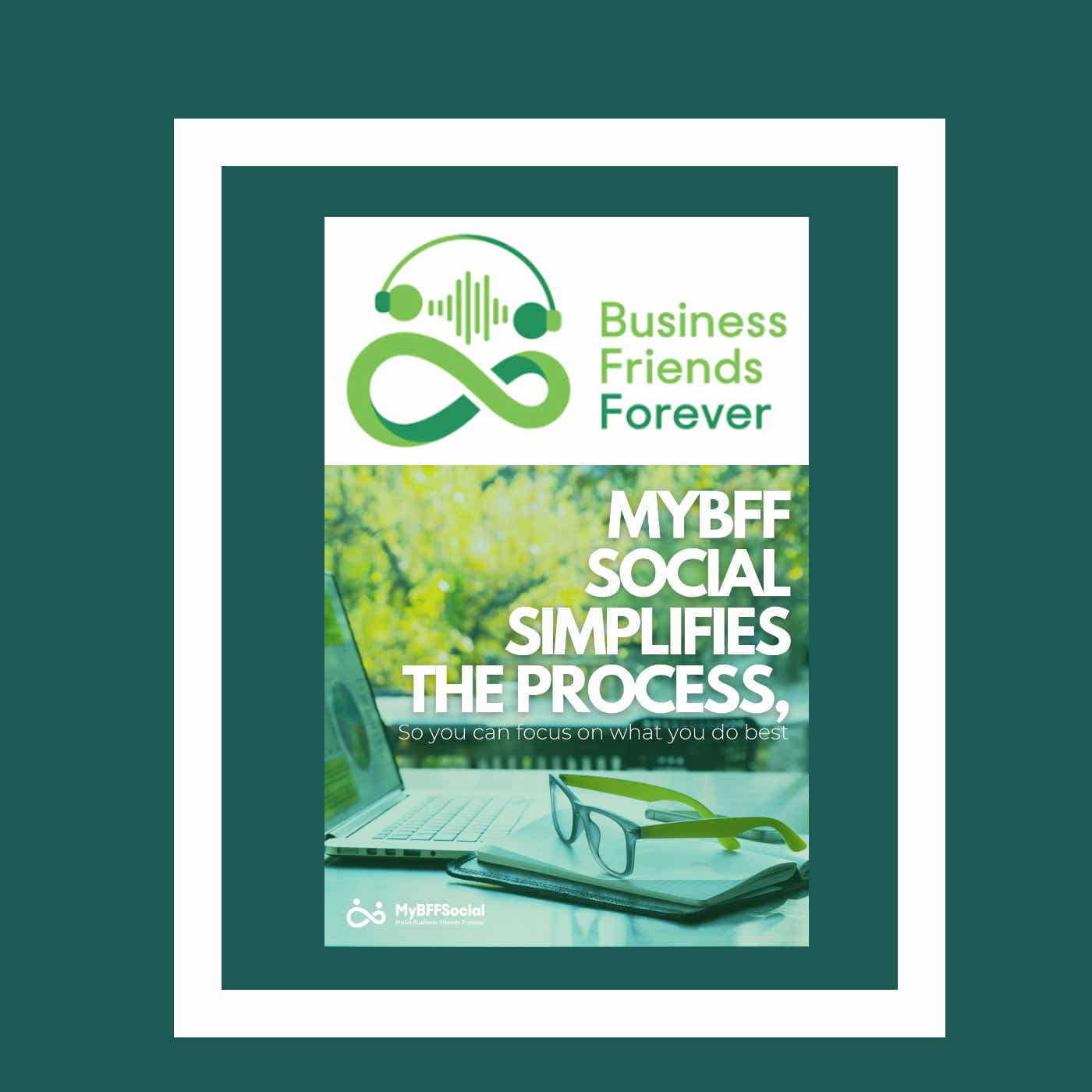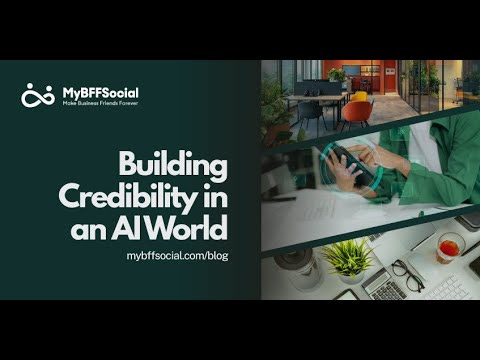MyBFF Business Leaders Podcast

MyBFF Business Leaders Podcast
Podcast Description
Welcome to the MyBFF Business Leaders Podcast, your go-to source for the latest trends, tips, and strategies to elevate your business. Each episode is packed with expert insights on media, marketing, AI, and advertising to help you stay ahead of the curve. Whether you’re looking to boost your social media game, sharpen your marketing tactics, or leverage new technologies, this podcast delivers the tools and knowledge you need to drive your business forward. Tune in and empower your growth with actionable advice from the world’s top ai-inspired business leaders! mybffsocial.substack.com
Podcast Insights
Content Themes
Episodes focus on various themes surrounding business growth, marketing strategies, and technology in the industry. For example, topics include the importance of personal branding, the effectiveness of AI tools for small businesses, and the role of social media in driving business engagement. Specific episodes detail strategies for using Google My Business, the evolution of real estate marketing, and the significance of email campaigns.

MyBFF Social produces one of the top-rated business marketing podcasts focused on helping brands and businesses drive business objectives via social media, marketing, advertising and public relations best-practices. The show is developed by MyBFF Social, CEO, Matt Gentile and is delivered via Google Notebook LM “AI” hosts.
In the age of AI search and endless scroll, the small businesses and solopreneurs who win are the ones who build both: a strong online reputation and undeniable real‑world credibility.
The new front door: AI and online credibility: AI search is quickly becoming the new front door to the Internet. Potential clients are no longer just “Googling” you; they’re asking AI tools:
“Who’s the most trusted plumber near me?”
“Which agent actually calls you back?”
“Which boutique firm understands small businesses?”
McKinsey warns that 20–50% of traditional search traffic is at risk as AI results answer questions without sending people to your site. Translation: your online reputation and signals now matter as much as your website, sometimes more.
To read the full post, visit the MyBFF Social blog or watch on MyBFF Social YouTube below or listen to the MyBFF Business Leaders podcast wherever you get your podcasts.
Real‑world credibility: still the engine: Here’s the twist: most of what gives you online credibility starts in the real world.
On the MyBFF Social blog, client stories show the pattern: businesses earn trust by delivering responsive service, honest advice, and measurable results—and then use digital channels to document that success. One campaign that beats industry response rates by 265% becomes proof you can point to online.
Real‑world credibility looks like:
* Showing up on time.
* Doing the work you promised.
* Fixing mistakes fast.
* Being the person people refer with zero hesitation.
Online credibility is just that reputation, amplified and searchable.
Drive down overhead costs and move your business forward with MyBFF Social today. Check out our Digital Marketing Mastery Program today. Contact Matt Gentile, CEO, today at 412-477-3349 or email [email protected] or schedule a consultation via: https://calendly.com/mybffsocial.
This is a public episode. If you would like to discuss this with other subscribers or get access to bonus episodes, visit mybffsocial.substack.com

Disclaimer
This podcast’s information is provided for general reference and was obtained from publicly accessible sources. The Podcast Collaborative neither produces nor verifies the content, accuracy, or suitability of this podcast. Views and opinions belong solely to the podcast creators and guests.
For a complete disclaimer, please see our Full Disclaimer on the archive page. The Podcast Collaborative bears no responsibility for the podcast’s themes, language, or overall content. Listener discretion is advised. Read our Terms of Use and Privacy Policy for more details.